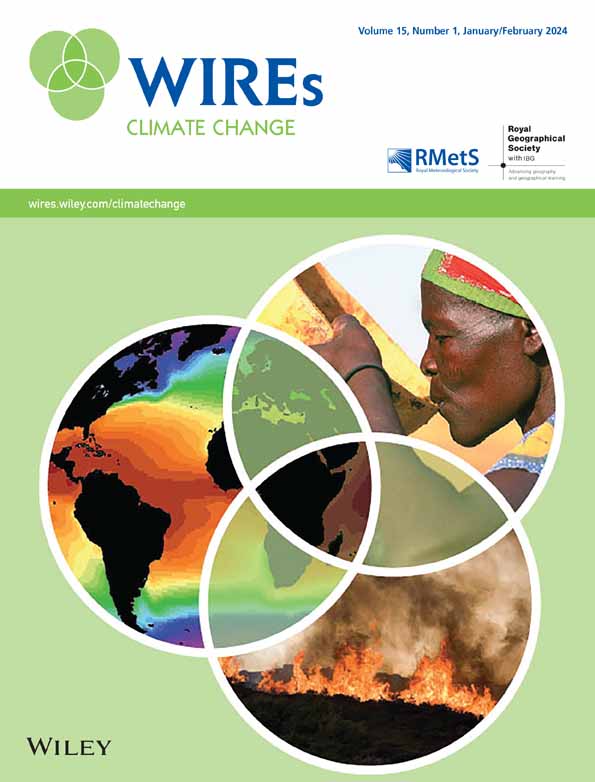Politics of attributing extreme events and disasters to climate change
IF 10.3
1区 环境科学与生态学
Q1 ENVIRONMENTAL STUDIES
引用次数: 39
Abstract
Climate change certainly shapes weather events. However, describing climate and weather as the cause of disasters can be misleading, since disasters are caused by pre‐existing fragilities and inequalities on the ground. Analytic frames that attribute disaster to climate can divert attention from these place‐based vulnerabilities and their socio‐political causes. Thus, while politicians may want to blame crises on climate change, members of the public may prefer to hold government accountable for inadequate investments in flood or drought prevention and precarious living conditions. To be both strategic and moral, framing choices must therefore be sensitive to context‐dependent political meanings and particularities, and to how the values implicit within analytic frames about the causes of disasters shape policy responses. Such sensitivity requires multicausal analysis of weather‐linked disasters to illuminate a broader range of means to reduce the damages associated with climate change and weather extremes. Through examples from around the world, and especially Brazil, we discuss how and why climate‐centric disaster framing can erase from view—and, thus, from policy agendas—the very socio‐economic and political factors that most centrally cause vulnerability and suffering in weather extremes and disasters. We also offer a theoretical discussion of why attribution is not neutral. Analytic frameworks always embed choices about factors that matter, and thus are inherently normative and consequential for understandings of responsibility and action.将极端事件和灾难归咎于气候变化的政治
气候变化无疑会影响天气事件。然而,将气候和天气描述为灾害的原因可能会产生误导,因为灾害是由当地先前存在的脆弱性和不平等造成的。将灾害归因于气候的分析框架可能会转移人们对这些基于地方的脆弱性及其社会政治原因的关注。因此,尽管政客们可能想将危机归咎于气候变化,但公众可能更愿意让政府对防洪或抗旱投资不足以及生活条件不稳定负责。因此,为了既具有战略意义又具有道德意义,框架选择必须对依赖于背景的政治含义和特殊性敏感,并对关于灾害原因的分析框架中隐含的价值观如何影响政策反应敏感。这种敏感性需要对与天气相关的灾害进行多配偶分析,以阐明减少与气候变化和极端天气相关的损害的更广泛方法。通过世界各地,特别是巴西的例子,我们讨论了以气候为中心的灾难框架如何以及为什么可以从视野中——从而从政策议程中——消除在极端天气和灾难中最主要导致脆弱性和痛苦的社会经济和政治因素。我们还提供了一个理论上的讨论,为什么归因不是中立的。分析框架总是包含对重要因素的选择,因此对于理解责任和行动来说,分析框架具有内在的规范性和重要性。
本文章由计算机程序翻译,如有差异,请以英文原文为准。
求助全文
约1分钟内获得全文
求助全文
来源期刊

Wiley Interdisciplinary Reviews: Climate Change
METEOROLOGY & ATMOSPHERIC SCIENCES-
CiteScore
20.00
自引率
2.20%
发文量
58
审稿时长
>12 weeks
期刊介绍:
WIREs Climate Change serves as a distinctive platform for delving into current and emerging knowledge across various disciplines contributing to the understanding of climate change. This includes environmental history, humanities, physical and life sciences, social sciences, engineering, and economics. Developed in association with the Royal Meteorological Society and the Royal Geographical Society (with IBG) in the UK, this publication acts as an encyclopedic reference for climate change scholarship and research, offering a forum to explore diverse perspectives on how climate change is comprehended, analyzed, and contested globally.
 求助内容:
求助内容: 应助结果提醒方式:
应助结果提醒方式:


